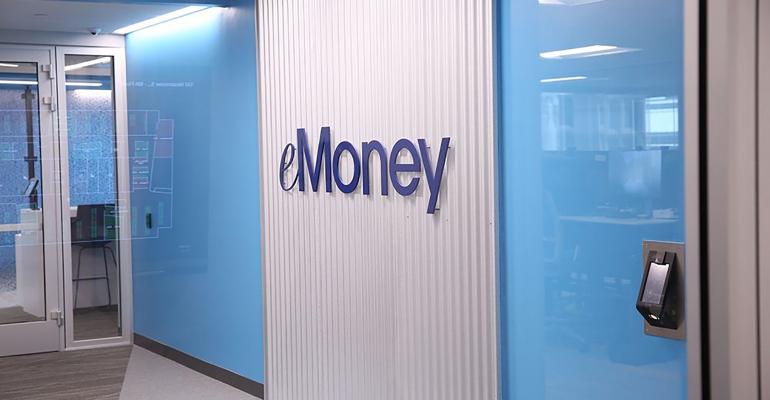eMoney’s financial planning app, cryptically named Project Avocado, is currently in testing with the firm’s employee base, WealthManagement.com has learned. The “alpha” version, or first iteration to be deployed outside of a development framework, has been put through its paces since early February, said Chad Porche, VP and head of UX design at eMoney. It’s currently deployed to “hundreds” of eMoney employees and the expectation is that it will be in the hands of eMoney’s “beta” group of pilot advisor firms before July.
The test deployment, which coincidentally overlapped with the spread of the coronavirus pandemic and subsequent restrictions on business openings and the movement of Americans, created unexpected data for the financial planning software developer. The app seeks to modify user behavior, in the form of spending decision “challenges” that are executed without human intervention.
One of those challenges was to spend less money dining out, a nudge that quickly lost relevancy as the reality of the pandemic eclipsed typical consumer spending. Instead, app developers are building challenges designed around online shopping and grocery spend, an indicator of the zigs and zags users, technologists and behavioral economists make in the dance of consumer behavior and responsible financial decision-making.
The finished app is expected to include a digital nudge for users to reach out and contact financial advisors linked to the user through a retirement plan, a feature that’s not currently active. In the beta phase, where this nudge feature will be deployed, eMoney developers plan to include firms both large and small that have capacity for bringing on new clients, as well as showcasing that the phone-an-advisor-type feature can be activated or deactivated depending on firm preference.
Avocado also needs to perfect self-spurred data aggregation. In other words, for an app that nudges financial behavior to be effective, it needs a broad understanding of the individual user’s behavior, including a peek at financial activity linked to accounts held outside of Fidelity, eMoney’s parent company. Last year, eMoney acknowledged a heavy reliance on screen scraping and set a goal of having 60% of screen scraping-based aggregation converted to APIs by the end of the year. As of now, eMoney is on target to meet that goal, if not exceed it, said Jessica Liberi, head of product.
A smooth aggregation experience becomes even more important when there’s no one else to encourage the user to aggregate their account data. “We have to consider the user experience without the advisor at the helm,” Liberi explained. “It’s up to the individual to aggregate.” By extension, it’s up to eMoney to illustrate that aggregation will be in a user’s best interest.
Engaging the user becomes even more complex when account opening, the traditional end goal of so many financial services app experiences, isn’t the stated end goal—at least according to Liberi and Porche.
“Retirement advisors are looking for ways to engage with clients,” explained Porche. Avocado is a way of doing that. The app developers, Porche said, want users to feel empowered and to be more financially literate after interacting with Avocado.
Avocado will also be collecting user data. The data will be used to expedite data entry if the user moves to a more traditional planning experience with an advisor, but it also makes retirement advisors’ jobs easier when they’re able to access and provide consumer behavior and client characteristics to plan providers, said Porche. From there, insights from Avocado could then find their way into other financial products or sales practices.
With Project Avocado now in the hands of users, and soon in the hands of non-eMoney users, Liberi and Porche are setting a full deployment goal for the end of this year or early 2021. And, as of now, it is still in possession of its product development title: “Project Avocado.”





